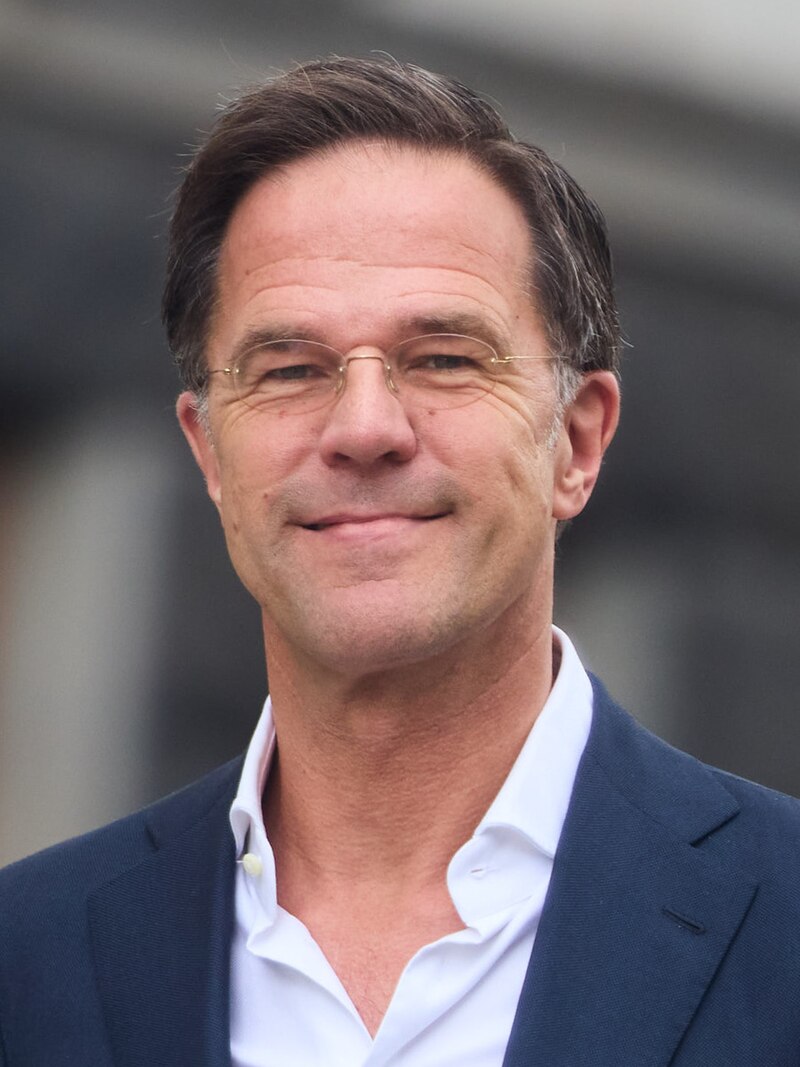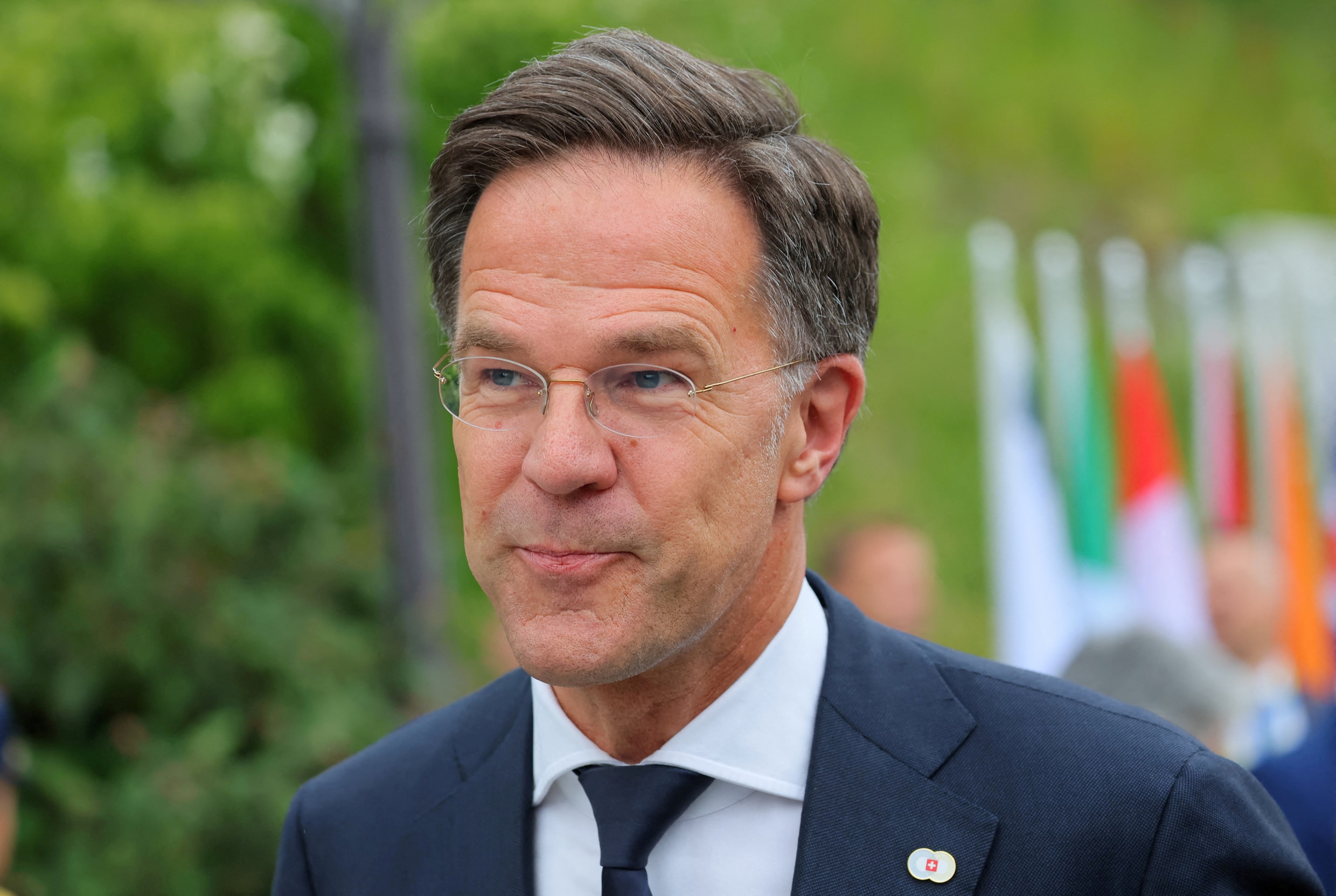[Breaking] Mark Rutte's Washington D.C. Visit: Key Updates & Insights
Will the new Secretary General of NATO, Mark Rutte, reshape the alliance in a time of unprecedented global instability? His appointment on October 1st, 2024, signals a pivotal moment for the organization, ushering in a new era of leadership with significant implications for international relations and the future of European security.
Mark Rutte's journey to the helm of NATO is a testament to his political acumen and decades of experience in the highest echelons of power. From his tenure as Prime Minister of the Netherlands, a role he held for nearly fourteen years, to his recent transition to Secretary General, Rutte has consistently demonstrated a commitment to transatlantic cooperation and a nuanced understanding of complex geopolitical challenges. His familiarity with key figures, like former US President Donald Trump, and his established relationships within the European Union, position him uniquely to navigate the intricate web of alliances and rivalries that define the modern world. His upcoming visit to Washington D.C. underscores the importance of the transatlantic partnership and the shared challenges that NATO faces.
| Attribute | Details |
|---|---|
| Full Name | Mark Rutte |
| Date of Birth | February 14, 1967 |
| Place of Birth | The Hague, Netherlands |
| Political Affiliation | People's Party for Freedom and Democracy (VVD) |
| Education | MA in History, Leiden University |
| Career Highlights |
|
| Key Political Stances |
|
| Major Challenges Faced |
|
| Personal Life | Unmarried |
| Additional Information | Known for his pragmatism, communication skills, and ability to build consensus. |
| Reference | NATO Official Website |
Rutte's predecessor, Jens Stoltenberg, successfully guided NATO through a period of significant challenges, including the annexation of Crimea and the resurgence of Russian aggression. Rutte steps into the role at a time when the war in Ukraine continues to rage, and the alliance faces increasing pressure to adapt to a rapidly changing global landscape. His commitment to regional stability is immediately put to the test. During his first visit to Kosovo, as NATO Secretary General in October, Rutte is expected to reiterate the alliance's commitment to the region and to confirm the existence of contingency plans.
The former Dutch Prime Minister's experience in managing complex international relations is a key asset as he assumes the leadership of NATO. Having served as the head of government for a significant period, he developed strong relationships with global leaders and gained valuable insights into the intricate workings of international diplomacy. His ability to negotiate and build consensus will be crucial in addressing the diverse interests of NATO's member states, especially during such a volatile period. His visit to the United States and his meeting with President Trump, demonstrate Rutte's efforts to maintain strong transatlantic ties, regardless of individual political ideologies. He has the challenging task of mediating between different factions and attempting to foster unity within the organization.
One of the key challenges for Rutte will be to manage the complex relationship between NATO and the United States. With shifting political winds in Washington, and with a former president who has openly questioned the value of the alliance, Rutte must work diligently to maintain a strong transatlantic partnership. He has to skillfully navigate the alliance's relationship with the U.S., while simultaneously supporting Ukraine in its fight against Russian aggression, and strengthening partnerships with other countries facing similar threats.
Rutte's leadership style is described as pragmatic, and he is often lauded for his ability to connect with a wide range of people. He is known to be a strong communicator, and is capable of articulating complex issues in a clear and concise manner. These qualities will be essential as he seeks to build consensus among NATO members and explain the alliance's goals to a broader audience. In his acceptance speech as NATO Secretary General, Rutte underscored the importance of keeping the alliance strong, supporting Ukraine, and strengthening partnerships. These priorities will shape his approach to the complex challenges facing the alliance.
The transition to the new Secretary General took place in Brussels, where he officially took over the leadership of the military alliance. The ceremony marked the end of Jens Stoltenberg's tenure, and officially launched Rutte's time at the helm. The handover took place amid a backdrop of geopolitical instability, demonstrating the importance of a unified and resolute NATO. Rutte's ability to adapt to the new order within the alliance and successfully act as a mediator, a charmer, and a whisperer will be critical to his success.
Rutte's appointment comes at a time when the political landscape is constantly shifting. In his role as Secretary General, he will need to tackle issues such as the MH17 crisis and the war in Ukraine. As a seasoned politician with years of experience, he understands the importance of navigating complex situations. He has already demonstrated his ability to build consensus and work with diverse groups, qualities that will serve him well in his new role.
Rutte's background is deeply rooted in the Netherlands. He was a member of the House of Representatives and later served as the Prime Minister for nearly 14 years. He is a staunch supporter of the liberal VVD party and is well-known for his European and transatlanticist views. His commitment to these values, combined with his experience in government, make him well-suited to lead NATO during this critical period.
His focus on maintaining NATO's strength, supporting Ukraine, and strengthening partnerships reflects the challenges facing the alliance. As the new Secretary General, Rutte is responsible for addressing numerous challenges, including the need to ensure the alliances effectiveness in an increasingly complex global landscape. He must also navigate the diverse interests of the alliance's member states. The situation with the United States and the potential for changes in U.S. policy, further complicates this already challenging environment.
Rutte's approach is likely to be marked by pragmatism and a focus on consensus-building, as he strives to guide NATO through a period of significant global instability. His long-term experience in politics provides him with a solid foundation to address these complex issues. The former Dutch Prime Minister faces a daunting task, but his experience and commitment to transatlantic cooperation suggest that he is well-prepared to lead NATO. His tenure as the 14th Secretary General of NATO, which began in October 2024, will be a pivotal period for the alliance. The global community will be keenly watching how Rutte balances his roles, his ability to find a way forward amidst geopolitical tensions, and the legacy he creates as the leader of NATO.


